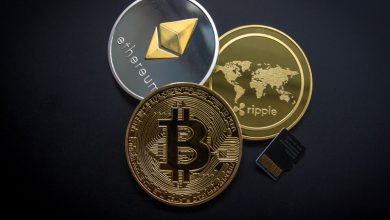
Bitcoin Hasn’t Yet Lived Up to Its Reputation as ‘Digital Gold,’ According to Citi
Spot ETFs have experienced net outflows during their second week of trading, reminiscent of the early days of ETFs, according to strategists at Citigroup.
In contrast to Bitcoin, much of Ethereum’s recent price movements have been more heavily influenced by the equity markets rather than ETF inflows.
Citi analysts indicated that the recent downturn in risky assets underscores that cryptocurrencies currently provide limited diversification benefits. They noted, “Crypto fundamentals are holding up overall, as stablecoins have avoided sharp outflows and the hash rate has risen, despite weaker price performance.”
Furthermore, Citi suggests that Bitcoin has not yet fulfilled its role as “digital gold.” They stated, “Although both gold and Bitcoin are limited in supply and considered zero-coupon instruments, Bitcoin does not display gold’s ‘store of value’ characteristics.” They concluded that during the recent market downturn, Bitcoin failed to act as a safe haven, reinforcing its status as a risk asset.
As of August 5, spot Bitcoin ETF net inflows have reached $19.1 billion, accounting for over 40% of the variations in weekly Bitcoin price movements since the ETFs began trading in January. In contrast, Ethereum ETFs have witnessed $460 million in net outflows during their initial two weeks of trading.
Citi highlighted the differing investor behaviors and market responses to the two leading cryptocurrencies in the notable price action variance between Bitcoin and Ethereum. Although the initial flows for Ethereum ETFs were negative, the Bitcoin ETF also experienced a decline in activity during the days following its launch.
Despite the recent crypto selloff, some fundamentals remain robust. Interest in cryptocurrencies has increased, and stablecoins have not faced significant outflows. While Ethereum’s network activity has decelerated, Bitcoin activity has remained relatively stable, albeit at lower levels.
Citi remarked that the hash rate remains volatile but has recently trended upward and noted that volumes on decentralized exchanges continue to grow compared to centralized platforms.
 GOOGL
GOOGL  META
META 


